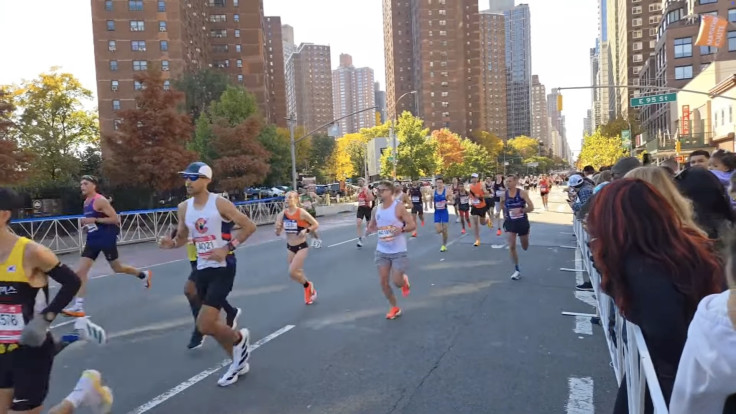Lee Su-Min's Marathon Flinch Goes Viral Online - Raises Question of Assault From Coach, but There's a Plausible Explanation
A viral clip shows Lee Su-min flinching from her coach at the marathon finish, sparking online speculation about possible misconduct

Marathon runner Lee Su-min's flinch and push of her coach at the finish line of the 2025 Incheon International Marathon has gone viral, sparking debate over athlete safety and appropriate boundaries. Footage shows Lee grimacing as her coach, Kim Wan-gi, wrapped a towel around her shoulders and attempted to steady her, prompting online speculation about the nature of the contact.
Some commentators suggested the interaction could amount to harassment or assault, particularly because the clip was widely shared and stripped of context. The incident has raised broader questions about finish-line protocols and how athletes are cared for immediately after completing grueling long distance events. Social media reactions intensified the controversy, even as Lee clarified her own perspective.
Experts emphasise that understanding post-race physiology and standard athlete care is crucial. Marathon runners often experience extreme fatigue, laboured breathing and muscle strain, which can make instinctive reactions to physical contact more pronounced. Even gentle guidance around the chest or upper body can feel painful immediately after a long-distance race, especially if the diaphragm or solar plexus is compressed.
What the Video Shows and Immediate Reactions
The incident occurred on 23 November 2025, when Lee crossed the finish line after winning the women's domestic division. Coach Kim approached to wrap her in a towel and provide support, a common practice intended to prevent collapse or hypothermia in fatigued athletes. Lee's reflexive push and pained expression were captured live and widely circulated, prompting scrutiny of the coach's actions, according to The Korea Times.
Kim defended his actions, stressing that brief physical intervention at the finish line is standard in track and field. 'This is common in track and field,' he said, noting that athletes occasionally faint or experience chest discomfort immediately after finishing. Experienced coaches concur that such guidance is intended to ensure safety rather than intimidate or harm competitors.
Understanding the Physical and Social Context
Long-distance running places extreme demands on the body. Fatigue, lactic acid build-up, and chest strain can make post-race contact uncomfortable or even painful. Sports medicine highlights a condition called post-exercise collapse, where blood pools in the legs and blood pressure drops suddenly when runners stop abruptly, which can cause dizziness, fainting or discomfort. Major marathons, including the Boston Marathon, advise athletes to keep walking after finishing, and provide towels, heat-sheet blankets and support staff to aid recovery. These interventions are routine and intended to protect runners from collapse or hypothermia.
Social media often amplifies brief moments, removing them from context. Side-by-side clips can exaggerate reflexive reactions, making them appear deliberate or confrontational. Observers note that viral videos frequently prompt snap judgements before the circumstances are fully understood.
Marathon runner Lee Su-min said Tuesday her coach did not apologize for the "forceful" physical contact he made with her after she won the domestic women’s title at the Incheon International Marathon, a moment that sparked criticism after it aired live. https://t.co/6lPPFqMjXt
— The Korea JoongAng Daily (@JoongAngDaily) November 26, 2025
Broader Implications for Athlete Care
The Lee Su-min episode highlights the delicate balance between athlete safety and personal autonomy. Coaches must intervene to protect competitors, yet athletes also require space and respect. The incident has sparked discussion about finish-line protocols and the need for clear guidelines to ensure both safety and dignity, particularly for female athletes.
Ultimately, Lee's push likely reflected pain and exhaustion rather than intent to reject her coach. The episode illustrates the importance of transparent safety procedures, informed public interpretation, and measured responses to fleeting viral moments. It underscores the need for awareness of both athlete welfare and the physiological context in which rapid post-race interventions occur.
© Copyright IBTimes 2025. All rights reserved.





















